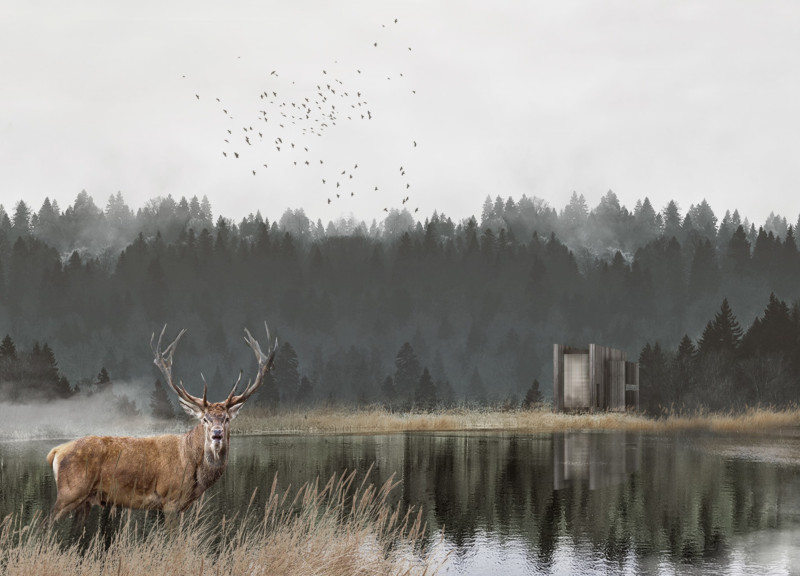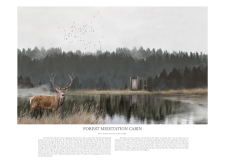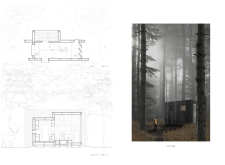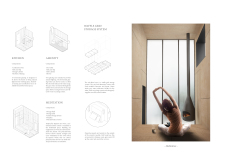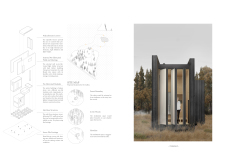5 key facts about this project
The Forest Meditation Cabin is located in a peaceful forest setting, designed to provide a space for meditation and quiet contemplation. The design focuses on blending harmoniously with the natural surroundings, promoting an experience rooted in simplicity and introspection. With a layout that invites tranquility, it aims to connect its users with the beauty of nature.
Exterior Design
The cabin's exterior features a dark timber finish that helps it blend into the forest landscape. Simple yet functional, the overall shape resembles traditional cabins while incorporating modern elements. A black steel frame leads to an oak timber door, creating a welcoming entrance that distinguishes the cabin's interior from the outside world.
Interior Functionality
Inside, the walls are finished with plywood, which reflects light and creates a warm atmosphere. The layout revolves around a tatami mat system that serves both practical and aesthetic purposes. This design allows for hiding bedding and tea equipment beneath the floor, keeping the space organized and free from distractions.
Culinary and Sustainable Features
The kitchen area includes essential tools such as a combustion fire, sink, tap, and storage cabinet. A horizontal glass panel above the kitchen bench brings in natural light, making the cooking area bright and inviting. Beneath the kitchen, hydronic heating offers warmth without consuming too much energy, reflecting a commitment to sustainability.
Meditation Space and Environmental Integration
Inspired by Japanese tea rooms, the meditation area features its own tatami system to enhance the experience of quiet reflection. Here, polycarbonate louvres can be adjusted to control light and airflow, allowing users to feel a part of the forest environment. When closed, these louvres provide good insulation, contributing to the cabin's energy efficiency.
The design employs pre-fabricated timber framing that supports the dark timber cladding. This construction method streamlines building and minimizes the impact on the environment, ensuring that the cabin remains a place for quiet and thoughtful connection with nature.


